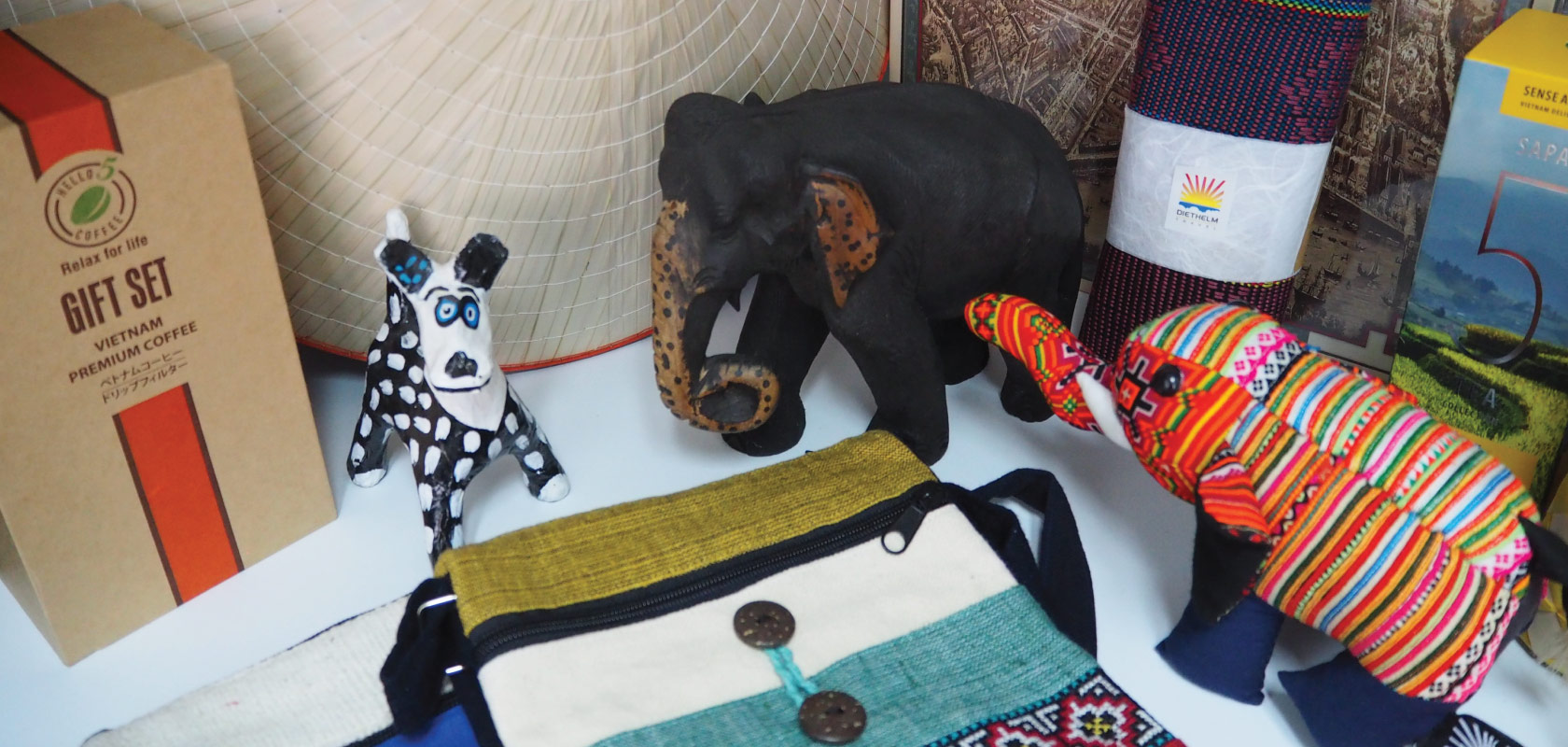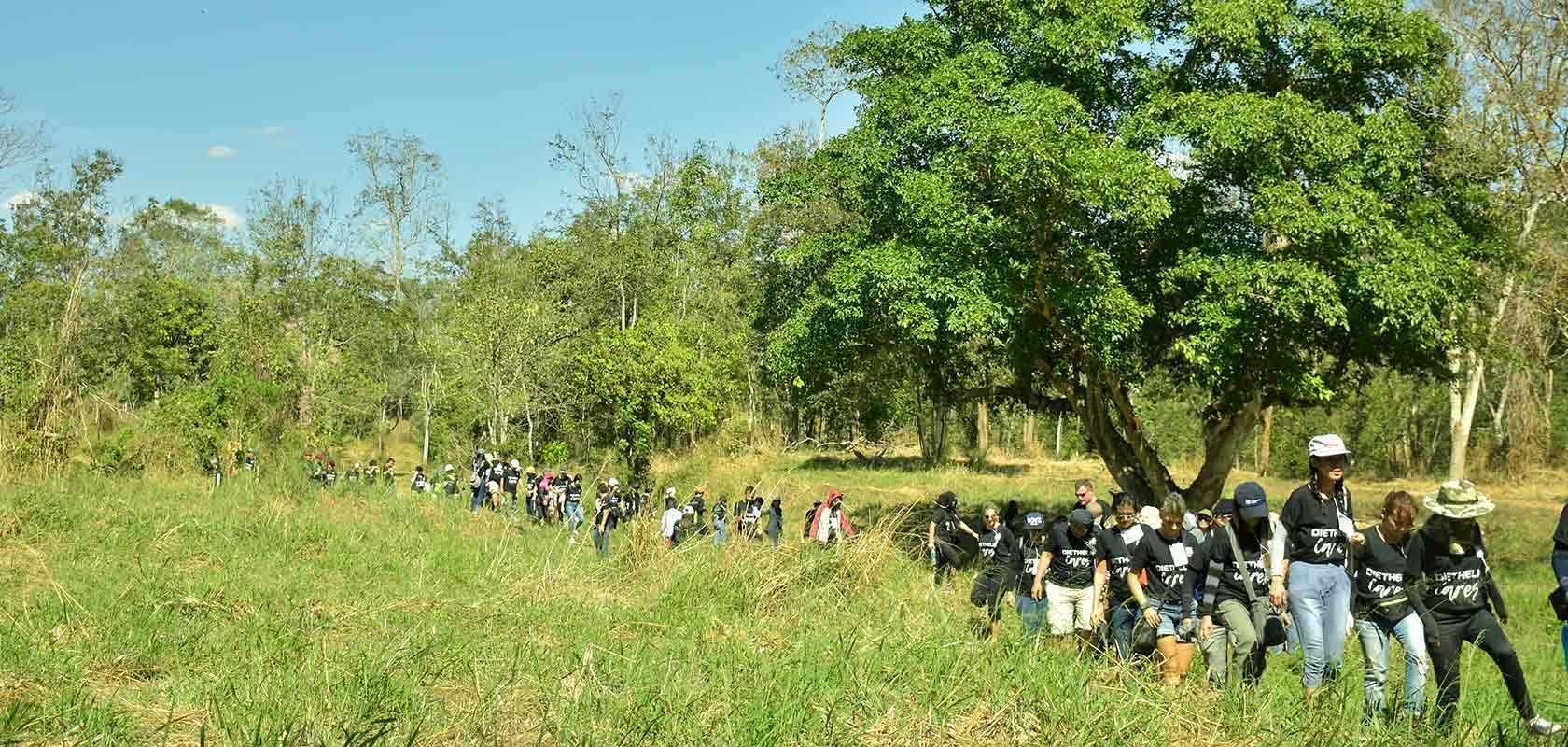Handmade jewellery, delicate ceramics, detailed textiles and meticulous woodwork – Asia has long held a fascination with traders, shoppers and collectors of all kinds. With its rich artisan heritages, the continent is awash with talent and it’s easy to want to fill up your bags with exotic goods to take back home.
Not all items or shops are created equal, however, and it’s important to try and shop responsibly, taking into consideration where and who you’re buying from, how the goods were produced and who is benefitting from the sale. Here we give some tips on where to go and what to buy in Vietnam, Bhutan, Myanmar, Laos and Sri Lanka.
Vietnam
The list of Vietnamese merchandise – and bargains – is seemingly endless and features bespoke tailoring in Hoi An, dark-roasted Vietnamese coffee, traditional handicrafts and intricate arts, such as conical hats, lacquerware and coconut dinnerware. For original and socially responsible goods and gifts, make sure to stock up on Marou Chocolate, some of the world’s most exquisite chocolate bars that are manufactured by a tiny operation in the outskirts of Ho Chi Minh City with beans that are hand-picked in the Mekong Delta. A finished bar of Marou Chocolate is a small work of art, and unwrapping it takes one on a journey deep into the provinces of Vietnam. In Hanoi, Betterday Shop is a fair trade organisation selling only goods produced in Vietnam, from cashews to organic shampoo. For a particularly unique souvenir, pick up 1880 Saigon Monopoly, a beautifully illustrated board game available in both English and French.
Bhutan
From wood turning to silk weaving, Bhutan’s wide array of traditional arts and crafts always exude a distinct elegance, beauty and attention to detail. Now open in the country’s capital of Thimpu, Bhutan’s first ever Craft Bazaar offers myriad products all in one place. Housed in traditional bamboo huts and boasting 80 stalls, the colourful market located opposite Nehru Wangchuk Cultural Centre is filled with authentic, handmade products, such as Bhutanese tshoglham (boots), thankha (scroll) paintings and elaborately embroidered costumes. Not only does the market showcase the country’s handcrafted items, but sources many of the products from rural areas acting to both preserve and promote Bhutan’s unique culture, while also helping drive equitable socio-economic development nationwide.
Myanmar
Next to Rangoon Tea House and directly above Sharkys in Yangon, Myanmar, Hla Day is a non profit social enterprise that works with artisans, disadvantaged groups and local businesses to design, develop and sell a wide selection of quality handmade products, such as bags, accessories, books and stationery, with a contemporary twist. Along with creating a marketplace and training to help support locals struggling to overcome disability, exclusion and poverty, Hla Day also makes an effort to source all materials locally and encourage traditional skills. Profits from purchases are reinvested to benefit the organisation’s community of producers.
Laos
For 16 years, Ock Pop Tok has made it its mission to help elevate the profile of Lao textiles while increasing economic and educational opportunities for artisans through a number of programmes and marketplaces.
Based in Luang Prabang, the organisation runs shops, cafes and a Living Crafts Centre while also selling their goods, including wall hangings, kids’ toys and even silk dresses, online. Community programmes include working with the Lao National Tourism Administration, development agencies and the Lao Women’s Union to train artisans from remote areas how to weave and use natural dyes, in business-related skills and more to help increase economic opportunities throughout the country.
Sri Lanka
Training and craft centres are often excellent places to pick up locally made souvenirs while also getting the opportunity to see how the goods are actually made. While in Sri Lanka, stop by some of these centres for a range of handcrafted products and a look at the country’s age-old craft traditions.
In Galle
- Watake Craft Training Centre – Dharma Vijyaramaya, Pitaramba, Bentota
- Beeralu Lace Craft Training Centre – Dalawalla, Unawatuna
- Bamboo Craft Centre – Hadiyaragoda Janapadaya, Ginimallagaha
In Matara
- Watake Craft Training Centre – Divisional Secretariat, Weligama
In Hambantota
- Toy Craft Training Centre – Palankada, Mulkirigala, Colombo District
- Wood Carving Training Centre – Janakala Kendraya, Battaramulla
- Leather Craft Training Centre – Janakala Kendraya, Battaramulla
5 tips for shopping responsibly
- Buy local! Whether you’re grabbing a snack or searching for souvenirs, opting to buy from local sellers instead of larger corporations, helps directly support the local community. For example, while in Thailand, make an effort to buy your afternoon coconut water from a street-side seller instead of popping into a 7-11 for bottled beverages.
- Haggle within reason: Haggling is often practiced and even expected in most markets throughout Asia, however, the point isn’t to get the absolute cheapest price possible but to
agree to a price that both you and the seller are happy with. While many handcrafted items in Asia are surprisingly affordable, particularly in Southeast Asia, the artisans and craftspeople creating them still deserve to earn livable wages from their craft. - Shop social enterprises & fair trade organisations: Use your dollars to make a statement by shopping at social enterprises, organisations that reinvest their profits into their community and employees, or organisations that follow fair trade practices.
- Head to the local market: Purchase snacks, food and souvenirs at local markets instead of big box stores in order to help support small, local producers.
- Shop sustainability: This is usually easier said than done since often you don’t see the entire process that goes into making an item or have control over how it is packaged, however, make an effort to be conscious about the materials used in the goods you buy. Look for producers who are creating goods out of reclaimed or recycled materials, and choose items made with natural and organic elements when possible.


